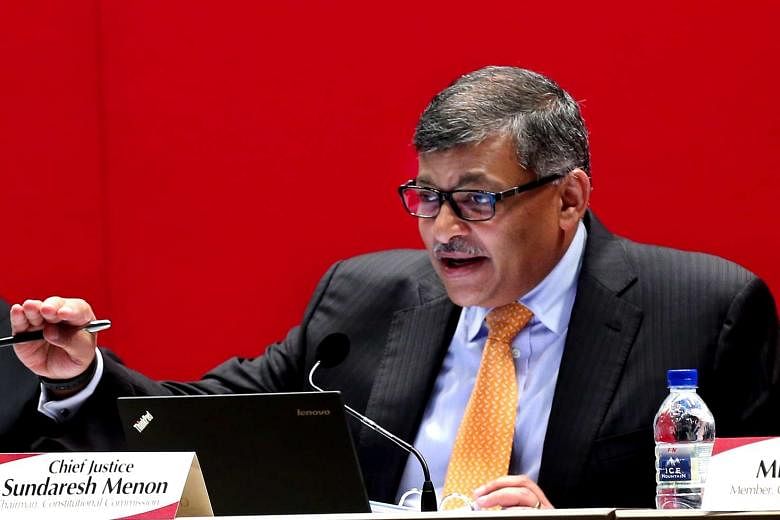SINGAPORE - Family disputes with cross-border elements raise complex questions which countries have to resolve, said Chief Justice Sundaresh Menon on Thursday (Sept 29).
He also announced that a pilot scheme to help divorcing parents and reduce conflict between them and their children will be introduced towards the end of this year.
Trained parenting coordinators will help those in high conflict to implement a parenting plan and guide them on resolving conflict.
From next week, parties with contested property disputes of over $3 million in value will attend private rather than court mediation as well, he said.
CJ Menon was speaking at the opening of the International Family Law Conference, which brings together speakers from the legal, psychological and social science sectors.
Highlighting that Singapore's "significant rise in transnational marriages" has been accompanied by a corresponding rise in family disputes, CJ Menon stressed that the guiding principle in child-related proceedings is always the child's welfare.
Divorce cases involving at least one party who is a foreigner rose from 31 per cent of cases filed in 2011 to 40 per cent last year.
A Family Justice Courts spokesman said that, on average, only 7 per cent of divorce cases involve both parties who are foreigners. More than 6,100 divorce writs have been filed yearly, on average, between 2011 and last year.
"The Child Abduction Convention resolves one aspect of cross-border disputes," said CJ Menon, referring to the International Convention on the Civil Aspects of International Child Abduction.
Signatory states are obliged to ensure a child's prompt return to the jurisdiction where they usually reside when one parent has taken him or her away without consent of the other.
"But there are other complex issues... which countries will have to resolve, either through consideration of other Conventions, or by encouraging the formation of communities of practice of various kinds," he said. "This is why sustained international conversation on family justice is crucial."
Noting that a working group of the council of Asean Chief Justices met this week, he said that their work will "facilitate greater interaction and dialogue on family matters among judiciaries in the region".
Citing the success of the 1980 Hague Convention, CJ Menon added that "international cooperation can ensure that parents are able to obtain real relief with the full assistance of authorities and the courts from contracting states".
Most Asean countries have not entered the Hague Convention, which is meant to offer protection from cross-border child abductions.
An International Advisory Council met for the first time on Wednesday (Sept 28) as well. This was to share perspectives on developments in family law. Its members are from Australia, Canada, Germany, Hong Kong and the United States.
Said CJ Menon: "We will continue to draw on the expertise of the council to build on, and implement, some of these ideas."


